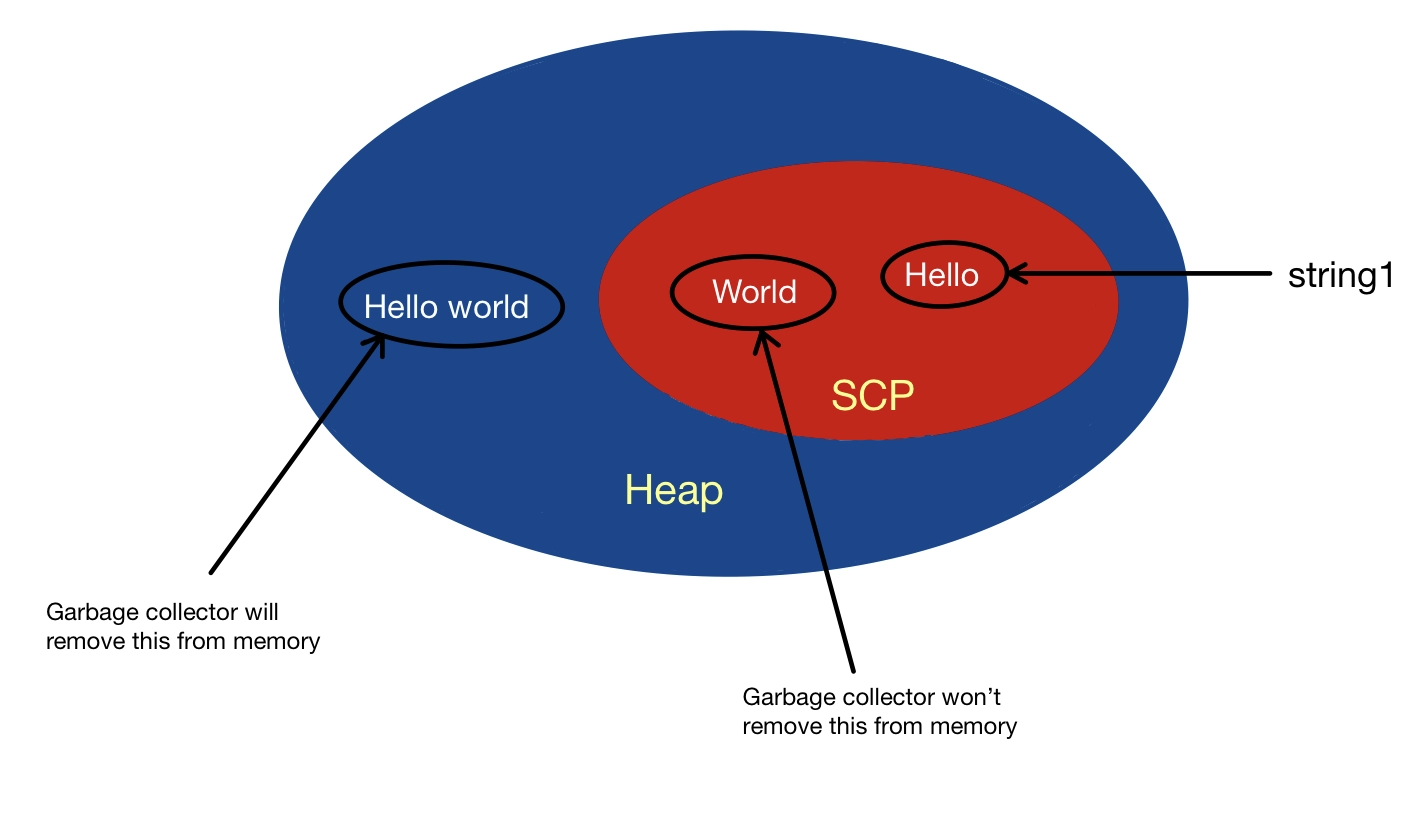Why Are Strings Immutable in Java? Comprehensive Analysis for Designers
Why Are Strings Immutable in Java? Comprehensive Analysis for Designers
Blog Article
Immutable Strings: A Secret Element in Ensuring Information Consistency and Reliability
In the world of information administration, the significance of immutable strings can not be overstated. These imperishable series of characters play a crucial role in promoting the integrity and accuracy of details within systems. By preserving a state of immutability, data uniformity is ensured, fostering a foundation of reliability whereupon essential processes depend. The idea of immutable strings transcends plain technicality; it is a cornerstone in the complicated internet of data administration. As we discover the benefits, application approaches, and useful applications of immutable strings, a more clear picture arises of their indispensable nature in safeguarding the electronic landscape.
The Principle of Immutable Strings
Immutable strings, a basic concept in shows, describe strings that can not be modified once they are created. In significance, when a string worth is assigned, any type of operation that appears to customize the string in fact produces a brand-new string. This immutability makes certain data uniformity and dependability in applications, as it stops unforeseen changes to the original data.
Benefits in Data Uniformity

Information consistency is crucial in numerous aspects of software development, including database management, multi-threaded atmospheres, and dispersed systems (Why are strings immutable in Java?). Immutable strings add considerably to achieving this uniformity by preventing information corruption due to simultaneous gain access to. In situations where multiple processes or threads interact with the very same information concurrently, unalterable strings function as a guard versus race conditions and synchronization concerns
Moreover, the immutability of strings simplifies debugging and testing processes. With unalterable strings, programmers can rely on that when a string is set, it will stay unmodified, making it easier to map the resource of errors and guaranteeing that test cases generate regular outcomes. This dependability in information managing ultimately leads to much more durable and secure applications.

Executing Unalterable Strings
Guaranteeing the immutability of strings calls for a thoughtful method to their execution in software program growth. One vital approach is to create string courses in such a way that protects against adjustments when a string item is created. By making strings unalterable, developers can enhance information consistency and dependability in their applications.
To carry out unalterable strings efficiently, developers should favor creating new string things instead than customizing existing ones. This method makes sure that when a string is appointed a value, it can not be changed. Furthermore, any operation that appears to change the string must develop a new string with the desired changes rather of changing the original.
Moreover, using unalterable strings can simplify concurrency monitoring in multi-threaded atmospheres. Because unalterable strings can not be transformed after production, they can be safely shared amongst numerous threads without the danger of data corruption.
Role in Integrity Guarantee
In software application development, the use of unalterable strings plays an essential role in ensuring the dependability of data operations. Unalterable strings, when created, can not be modified, ensuring that the data they stand for remains constant throughout the application's implementation. This immutability building provides a degree of guarantee that the data being home refined will certainly not be accidentally transformed, resulting in unexpected results or errors in the system.
By incorporating unalterable strings into software program style, designers can boost the dependability of their applications by minimizing the threats associated with mutable data - Why are strings immutable in Java?. Unalterable strings help in stopping information corruption or unintended alterations, which can be especially crucial when dealing with sensitive info or when data integrity is critical
Moreover, using immutable strings simplifies concurrent processing, as several threads can securely access and share string data without the risk of one string changing the web content while another reads it. This element contributes substantially to the general reliability of the software program system, guaranteeing consistent and foreseeable actions in data taking care of procedures.
Applications and System Combination
The seamless assimilation of unalterable strings into different applications and systems is essential for ensuring robust data consistency and dependability across varied technical atmospheres - Why are strings immutable in Java?. Unalterable strings play a critical duty in enhancing the stability of data exchanges and communications within facility software ecosystems. By incorporating immutable strings right into applications, designers can reduce the risks connected with data meddling, unauthorized adjustments, and unintentional modifications, thereby fortifying the total safety and security stance of the system
Unalterable strings can improve interoperability in between inconsonant systems by providing a standardized layout for data representation, enabling more reliable data handling and exchange protocols across interconnected platforms. By taking on unalterable strings in applications and find out this here system assimilation processes, organizations can strengthen their data framework and promote the dependability and consistency of their information properties.
Verdict
In final thought, unalterable strings play an important role in keeping information uniformity and dependability in different applications and system integrations. By making sure that strings can not be changed as soon as produced, the stability of information is preserved, decreasing the danger of errors and variances. Applying immutable strings can dramatically enhance the dependability of systems, eventually resulting in even more trustworthy and accurate data handling.
Report this page